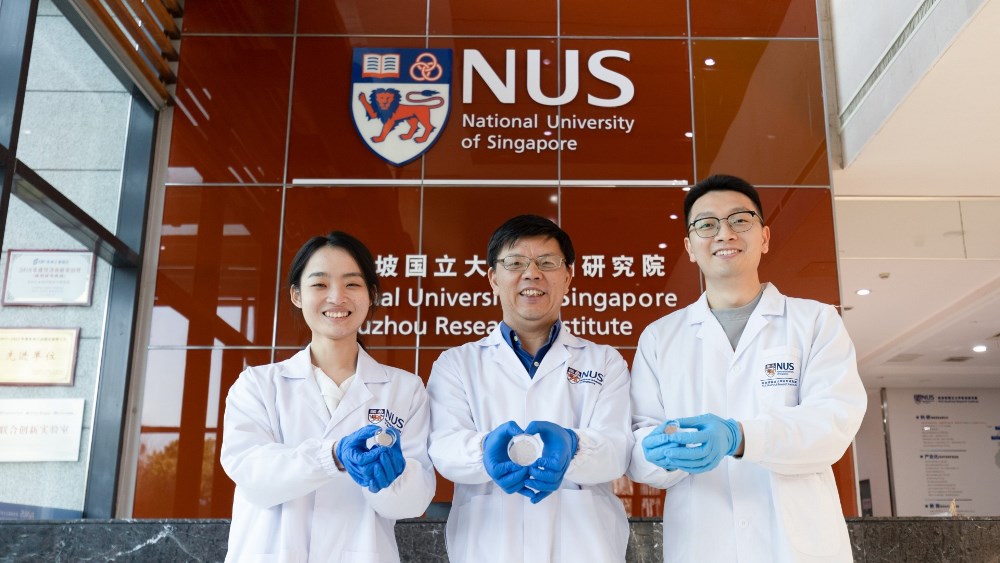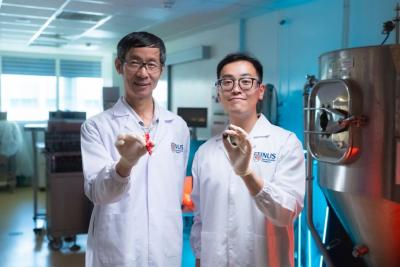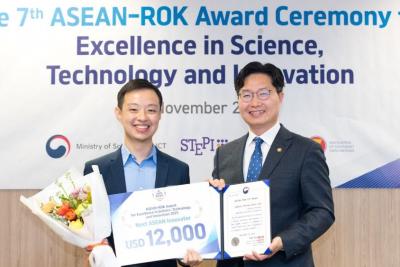Các nhà khoa học của NUS phát triển khung nuôi cấy tế bào dựa trên thực vật
A research team from the National University of Singapore (NUS) has successfully used common plant proteins to 3D-print an edible cell culture scaffold, allowing more affordable and sustainable lab-grown meat to be served on the table.

NUS Professor Huang Dejian (middle) and his research team, which included Ms Su Lingshan (left) and Dr Jing Linzhi (right), developed the plant-based cell culture scaffolds.
As consumers become more conscious of the environmental and ethical ramifications of their food, lab-grown meat, also known as cultured meat or cell-based meat, is becoming an increasingly popular source of dietary protein. Cultured meat is produced by taking skeletal muscle cells from animals and growing them on three-dimensional constructs called scaffolds, which provide structural support as the cells multiply and develop into tissues.
However, cell culture scaffolds are typically made from synthetic or animal-based materials, which are either too expensive or inedible. In search of an alternative, the team led by Professor Huang Dejian, Deputy Head of the NUS Department of Food Science and Technology, turned to plant proteins, which are known to be biodegradable and biocompatible with animal cells. Crucially, plant proteins also satisfy common requirements for food consumption, making the resulting scaffold fit for culturing meat.
See more here





















